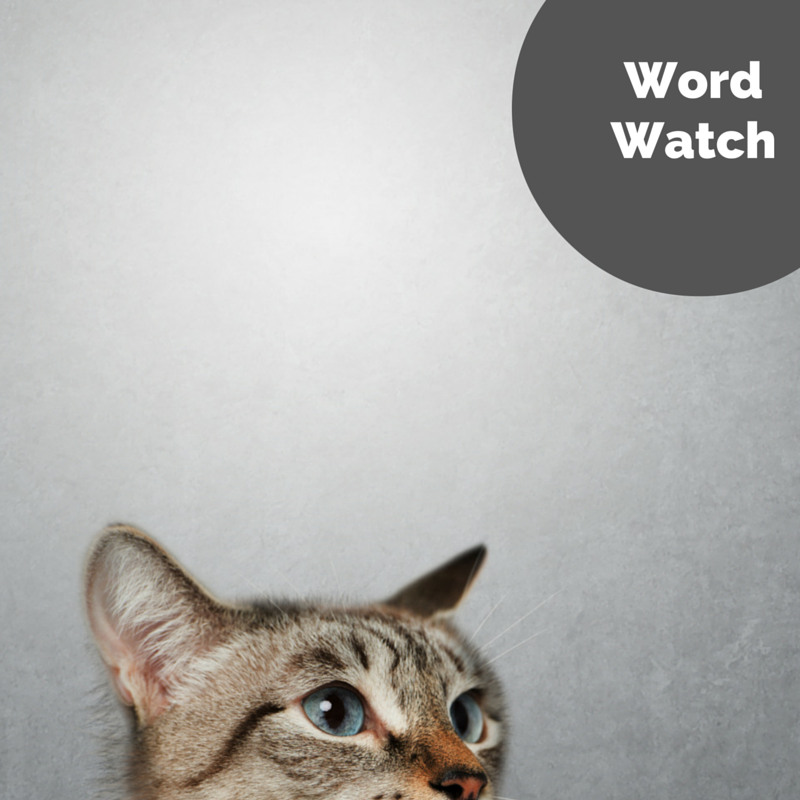 I’m starting a new category of posts today called ‘word watch’, where I look at a word and how it’s being used. In particular, the idea is to look at those which are used in spoken English or in songs but which don’t seem to be given much attention in the main dictionaries (I’ll also go back to the Get Into English archives and update any posts where I’ve focussed on one particular word).
I’m starting a new category of posts today called ‘word watch’, where I look at a word and how it’s being used. In particular, the idea is to look at those which are used in spoken English or in songs but which don’t seem to be given much attention in the main dictionaries (I’ll also go back to the Get Into English archives and update any posts where I’ve focussed on one particular word).
I was preparing a zouk playlist today on YouTube just before my dance class, and came across a really good song that’s well known in the local Latin community. It’s called ‘Tonight (Best You Ever Had)‘ by John Legend, and features Ludacris.
The song tells the story of a man who’s looking forward to catching up with a woman he’s dating. Well, he doesn’t just want to catch up with her, he also wants to shag her (= have sex with her) and spend the night together. I don’t think they’ll be spending the night reading this blog, alas:
Baby, tonight’s the night I let you know
Baby, tonight’s the night we lose control
Baby, tonight you need that, tonight believe that
Tonight I’ll be the best you ever had
I don’t wanna brag, but I’ll be
The best you ever had
I don’t wanna brag, but I’ll be
The best you ever had
In the song the man is really confident, possibly over-confident, maybe playful, flirty, or just arrogant (it depends on your point of view!) and tells the woman:
“I don’t want to brag, but I’ll be the best..”
Actually, if you check the video below, I’d describe the man as cocky. A cocky man is confident in a slightly arrogant way – and some women love cocky men. The opposite of cocky would be timid or shy.
What do you think? It’s a great dance track (I’ve posted the zouk version below), but it is quite racy. Check out the lyrics – how many sexual references can you spot..? In particular, there are a few double entendres – these are words or phrases which have two meanings, a ‘normal’ one and a sexual one.
Please feel free to ask about the other lyrics by leaving a comment below.
Word Watch – Brag [v.]
To brag is to say good things about yourself or your achievements and successes: how good you can do something, how much money you have, what you have bought, what you can do, and so on.
As a cultural note the British dictionaries seem to add that this word is used in a disapproving way:
For example: “He bragged about his car collection.”
However, bragging in Australia and the USA is probably more common as it’s more socially-acceptable to express or show signs of ambition in the New World 🙂 Compare the American who’s ok to show he’s successful with the Englishman who’s a bit more reserved. Aussies are usually in-between.
The Australian Macquarie describes brag in a more neutral way:
“To use boastful language.”
Great minds think alike, as I also thought of ‘boast‘ as being a very good synonym.
Forms:
Bragged; bragging
A person who brags is called a bragger.
Bragging is the main noun form, although some Americans seem to use brag as a noun.
‘Brag’ In Spoken English
“It’s nothing to brag about.”
This is used to soften an achievement or it can be used to put someone down (= to make someone feel bad or not as good about something):
Example 1: “I have a nice garden but it’s nothing to brag about.”
Example 2:
Julie: “I think I’m a better singer than Britney Spears.”
Salome: “Well, that’s nothing to brag about.”
As another cultural note, this can also be said in a playful or flirty way, so it might not be a real put-down.
Example 3 is from Salon.com:

And to be fair, the USA Today has used this word to criticise Donald Trump:

Brag About
As you can see above, you can brag about something:
He brags all the time about his car.
Sometimes you might meet a guy who likes to show you photos of his beautiful girlfriend and say how smart she is:
“Oh man he’s always bragging about her. I wished he’d give it a rest!”
Brag About How
Patterns with ‘brag’ sometimes include ‘how’:
He brags about how wealthy he is.
Brag That..
For example:
He bragged that he was the best player on the team.
The word ‘brag’ seems to be used more to talk about men, but with sites like Instagram allowing women to show off more and more, I’m sure it’ll even out in future. Common examples include:
He brags about me to his friends.
He brags about his money.
He likes to brag about his apartment in Albert Park.
‘I’ Is The Most Common Pronoun With ‘Brag’
When I checked a corpora for information on collocations with ‘brag‘, I came out as the most common pronoun:
“I’m not saying this to brag..”
“I don’t brag much.”
“I don’t like to brag.”
“I shouldn’t brag, but I think this is really good work.”
“Something To Brag About”
This can be used in conversation:
Julie: “Hey I got an A for the Cambridge First exam!”
Simon: “Good stuff! That’s something to brag about!”
Bragging Rights
This is used positively or humorously to say that someone has the right to brag about something:
“Ok guys, Jay got with the hottest model tonight, so he’s got bragging rights.”
A Brag Book (USA)
This term is used to talk about a folder you present to show that you are enthusiastic to do a particular job. At an interview you could present a brag book in order to support your application. It includes examples of your work, and enables you to go into more depth about the training and professional development you’ve undertaken during your career.
Hey, I don’t want to brag but I actually presented a ‘brag book’ at a job interview before I even knew what the word was for it. It had copies of English teaching materials I’d typed up and I think it made a very good impression.
Anyhow, please check out the song again! Here’s the zouk remix. The full lyrics are here. Enjoy!
And one more thing – if you liked this article, please feel free to ‘like’ it and share it with your friends, family, and frenemies!

Great article! You´ve hit it on the nail, Dave!
I appreciate that someone has decided to write more about everyday English, not just textbook English! I´ve got a few American friends and all of them use “brag” very often, plus you´ll often come across it when you read books for native speakers, but it´s one of those words that are hardly ever in textbooks. In fact, I don´t remember seeing this word anywhere, although I´ve worked with loads of textbooks as I am a teacher of English.
Thanks a lot Dave!
Hi Zina
Yeah, exactly – in Australia we also use the word far more than what the main dictionaries seem to indicate!
Thanks a lot for your comments. It’s always nice to see what posts work better, I quite enjoyed writing this one.
David